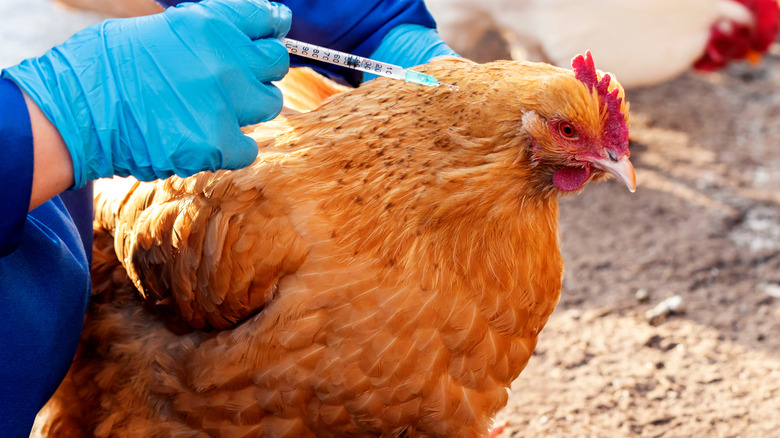Should You Be Worried About The Increasing Cases Of Bird Flu In The US?
A current wave of highly contagious bird flu, which is the worst outbreak of an avian flu since 2015, is gaining attention and causing concern among farmers and health officials, according to NBC. The strain, called H5N1, has devastated domestic poultry farms across the world including farms in 17 U.S. states. Twenty-one states in total have reported cases of infected birds, and almost 7 million chickens and turkeys have been killed due to the outbreak, according to the Associated Press (AP).
Bird flu is common among wild waterfowl, and migrating birds spread it to domestic chickens, turkeys, ducks, and geese through infected feces. Evidence also suggests that the virus may linger in barns, on farm equipment, mice, and dust particles (per the AP).
So far, there are no cases of people becoming infected with H5N1 in the U.S., and only one case was reported in the U.K. in January 2022, according to the Centers for Disease Control and Prevention. But is there a reason to worry?
The risk to humans remains low
Experts at the Centers for Disease Control and Prevention (CDC) state that the virus is currently an animal health issue. In addition, the organization reported that at this time, the risk to humans is low, but it will monitor humans and animals that have been exposed to the virus. Dr. William Schaffner, expert in infectious diseases at the Vanderbilt University Medical Center, told NBC that the virus has a difficult time infecting humans, adding that it cannot be transmitted through food that is properly cooked. That said, if the virus continues to spread, there is a greater chance that it could mutate and become more of a risk to humans.
To be safe, the CDC urges people to avoid contact with birds that have died or appear sick. People who handle or come into close contact with domestic poultry or wild birds should wear gloves and a face mask, and wash hands after contact the animals.


